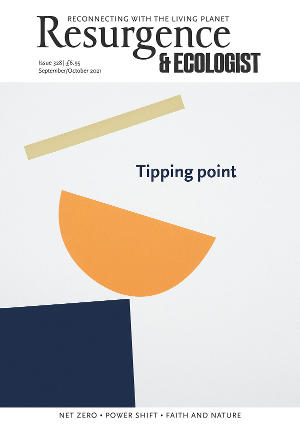Melanie Challenger’s How to Be Animal: A New History of What It Means to Be Human uses the tools of rationalism and reductionism against their own proponents: humanists, who with their rise, threaten to further disconnect us from ourselves and the living world.
With a clear love for ecology, philosophy, law, psychology, palaeontology and anthropology, Challenger works to suggest a different vision that frees us from the perceptions imbued in us by industrial society. The blame is rightly placed on the utilitarian mindset, which is driven to prove a theory of human exceptionalism in an effort to outwit our species’ ever-present fear of death. Repetitively, Challenger successfully makes the point that “if we matter, so does everything else,” and that our obsession with human supremacism is what blinds us to the exceptionality of what is really going on around us, which is the real tragedy of the human story.
The book reads as a recovery programme for humanists, especially those who have climbed to the top of the pyramid created by industrialisation and racial capitalism and now look to the colonisation of Mars, artificial intelligence and bioengineering as a solution to this human condition. Rather than choosing “to climb down and to share, to conceive of limits and seek progress in ideas rather than materials”, they continue to rationalise structural violence and facilitate the world we are wound in now, speedily spiralling towards extinction.
Despite much useful information, there are some problematic aspects to Challenger’s approach. A review by Lucy Jones on the front cover describes the book as “a new ethic for our relationship with the rest of the living world”, but this perspective is not new. It is culture forgotten. And in most traditional cultures that have not been entirely wiped out by genocide perpetrated by ‘rationality’, this ‘ethic’ is the long-held reality for people who, despite making up only 3% of our species’ population, protect over 80% of our biosphere.
The rhetoric within the book is almost entirely supported by the studies and opinions of science, philosophy and psychology. When traditional cultures are mentioned, it is strictly from an anthropological perspective on the outside looking in, rather than amplifying the wisdom and voices of those who truly understand and live an animistic worldview. It excludes the ripple of interpersonal and interspecies benefits that this worldview facilitates, which has been scientifically proved to enhance relationships with self and others, far exceeding our dominant culture’s grasp of empathy, community, connection and compassion.
Whilst it is clear that its audience is humanists, atheists and agnostics, How to Be Animal, by avoiding the roots of animism and sticking to linear declarative knowledge alone, fails to create the complex connectivity needed to reshape our ways of thinking. The author makes clear that “seeing our minds as our souls is more problematic than the original idea of soul itself,” yet in most traditional cultures it is interaction between abstract and concrete worlds of knowledge that keeps ideas of human exceptionalism from sprouting and allows knowledge to develop fully integrated into the living community of flora and fauna.
And whilst it is true that the spiritual movements of our species have caused more pain than pleasure, it is again rationalism, not ritual, that has built the hierarchy to support supremacy perpetuated under the guise of spirituality. Blaming the sacred for the invention of myths of human uniqueness excuses rationality from its major role in upholding supremacy. Without including the sacred in relation to our role in ecology, it is a questionable approach to try to solve the problems created by rationalism by using the same way of thinking that led us away from the living world and ourselves in the first place.






